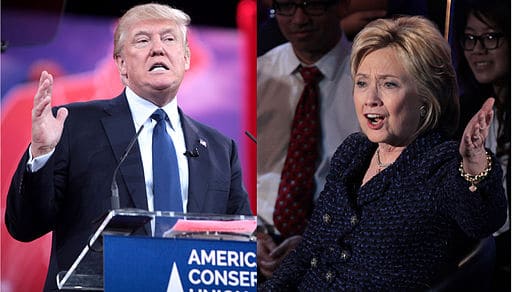I have found that the key to being an effective leader is learning to be a non-anxious presence. That means not letting your own anxiety affect your relationships while still staying emotionally connected. It’s easy to not let your anxiety interfere if you disconnect emotionally. It’s also easy to stay connected emotionally without keeping your anxiety in check…although others might not find it so pleasant.
The challenge is to behave in non-anxious ways WHILE staying connected emotionally.
I’m not going to tell you who I’m voting for. It’s not like I’m shy about it. I have a sign in my window. If you want to know you can drive by my house. But this post is about emotional process and emotional process functions independently of content.
As we say in family systems, it’s process not content. Pay attention to the emotional process, regardless of the subject matter,
So you don’t need to know my candidate for this to make sense. In fact, it’s easier to understand without knowing.
This presidential election is filled with a lot of emotion. The “unlikeable” rating for each major candidate is historical. People are really angry. They are emotional. I get angry at times.
Yet, the opponent’s supporters are my friends, neighbors and perhaps even relatives.
In the end, who someone votes for is not really going to bug me.
Here are five reasons why.
People Don’t Negotiate Closely Held Values
In many ways, this election is not about the candidates but about a pretty clear division in values in this country. About 40% of the country will support each candidate, regardless of who they are because their party represents a particular world view. And that world view is not likely to change. It’s the people in the middle who will decide who is president.
I don’t agree with the other 40%, but I’m not going to change their minds. So why would I waste my energy trying?
People Don’t Make Decisions Rationally
That’s right. Decisions are made in the limbic brain, which has no capacity for speech. We really do make “gut decisions” or “go with our heart.” Then we rationalize them with whatever reasons we can articulate.
We’re selective when we rationalize. We emphasize the positives and ignore or dismiss the negatives.
So when I think to myself that the opponent’s supporters are doing this, I remind myself that I’m doing the same.
It’s Not Worth the Energy
Family systems theory has a concept called leadership through self-differentiation. It is the ability to articulate one’s own goals and beliefs while staying non-anxious and emotionally connected. It’s all about working on our own responses to the system in a way that takes responsibility for our own condition.
It’s saying “I believe” or “I feel” rather than using the blaming “you” or the guilting “we.”
The blaming “you” tries to make others responsible for our condition.
The guilting “we,” as in “we should” or “we need to,” uses the pressure of togetherness to get others to change.
In either case, we use a lot of emotional energy trying to convince others that they’re wrong. And that emotional energy is often filled with anxiety.
Leadership through differentiation, on the other hand, reverses that. By being able to take emotional stands (“I believe”), it is the others who get anxious and who will try to change us.
It’s not that we don’t listen or are not willing to change our mind. Our task is to stay non-anxious while staying emotionally connected. That makes it easier to articulate what we believe and makes it easier to listen. It’s not easy, but it’s a lot easier than trying to change the minds of others.
Back to the election. What good will it do me to argue with those who support the opponent? The fact is, when you try to tell someone what to do or think, they usually dig in. So if I spend a lot of time or energy on it, I’m only hurting myself.
(This is different than working for your candidate. That’s more about trying to get those who agree with you to get out and vote).
I Trust the System
You think I’m crazy. Hear me out.
Our constitution was designed so that without a mandate, our political system doesn’t move very quickly. That’s why we have checks and balances.
Our country is divided. So nothing happens. If you’re frustrated with government and politicians not getting anything done, it’s mostly because that’s the way it was set up.
Sure…I’d like to see my agenda move forward more quickly, but 40% of the country is not a mandate.
I Trust in God
As a Christian, I believe in God’s promise to one day restore all things to their original condition. Evil, injustice, oppression and human suffering will be wiped out. We will be made whole and live in community with humankind and with God.
That’s what we are praying for in the part of the Lord’s Prayer that says, “Your kingdom come, your will be done, on earth as it is in heaven.”
But we also believe that whenever love and grace win out over injustice, whenever we live in true community, whenever we truly live out what God intends, we see a glimpse of that fulfillment of all things. And others can see it, too.
So, if the election doesn’t go my way, I won’t be apoplectic. I may be disturbed for a bit. But God is in charge and that’s bigger than any candidate winning an election in a tiny blip in human history.


